All is not well in Tirumala!
If the government thinks it is secular, then by inference, the entities it controls must also be secular. Which begs the question, are Churches and Mosques secular?
ByTeam PGurus -February 24, 2020
https://www.pgurus.com/all-is-not-well-in-tirumala/
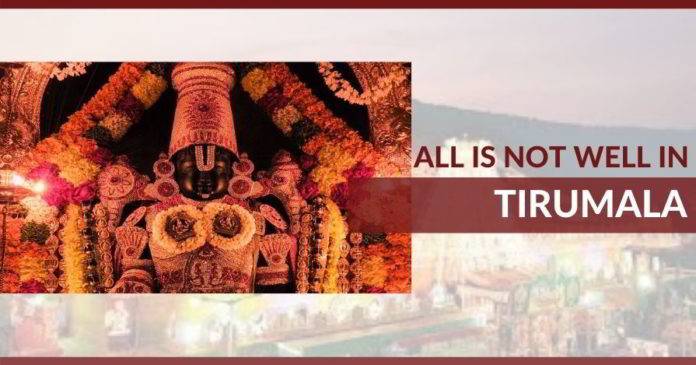
Many are wondering as to how a religious institution can be secular; the very foundation of TTD is a Devasthanam, which is clearly a religious institution ofDevasthanam. Would the honourable court use the same yardstick if this were to have happened in a Church or a Masjid?
All is not well in Tirumala and in Andhra Pradesh. What is happening in the Tirumala Tirupati Devasthanam (TTD) in relation to the 44 employees who received notices from the authorities? This is the question circling in everyone’s mind. The answer? Nothing. 36 out of the 44 employees approached the Andhra Pradesh court, (WP 3023/ 2018) and the court gave a stay order on the termination clause of the show cause notice. The learned court opined that these employees could not be terminated but instead be moved to other departments; however, the employees can respond to the notice. The final verdict, in this case, is yet to come. Here is the gist of the order (Figure 1 and Figure 3):
“As the petitioners have all been working with the TTD for the past several years and, in a few cases for more than a quarter of a century, we are, prima facie, of the view that the TTD may not be justified in terminating their services solely on the ground that they do not profess Hindu religion, even though they are all employed by the TTD outside the Temples being run by it.
While we see no reason to interdict the show cause notice and direct the petitioners to submit their reply thereto, the second respondent – TTD shall not terminate their services pending further orders in this Writ Petition. It is made clear that this order shall not disable the TTD from posting the petitioners to any of its institutions or departments outside its Temples.”
Why was Sneha Latha not served a notice?
The Government order of Nov 1, 2007, did not apply to the likes of Deputy EO Sneha Latha, a Christian, who was caught going to church in a TTD vehicle[1]. In her case allegedly the recruitment happened based on Government Order 1060 dated October 24, 1989, that stipulated that appointment to any categories, except in the case of teaching institutions shall be made only from persons professing Hindu religion[2]. It is in the Government Order that was issued on Nov 1, 2007, that Rule 9, sub-rule (vi) was amended to mandate that all TTD employees including those working in TTD-funded institutions be Hindu, and is reproduced below:
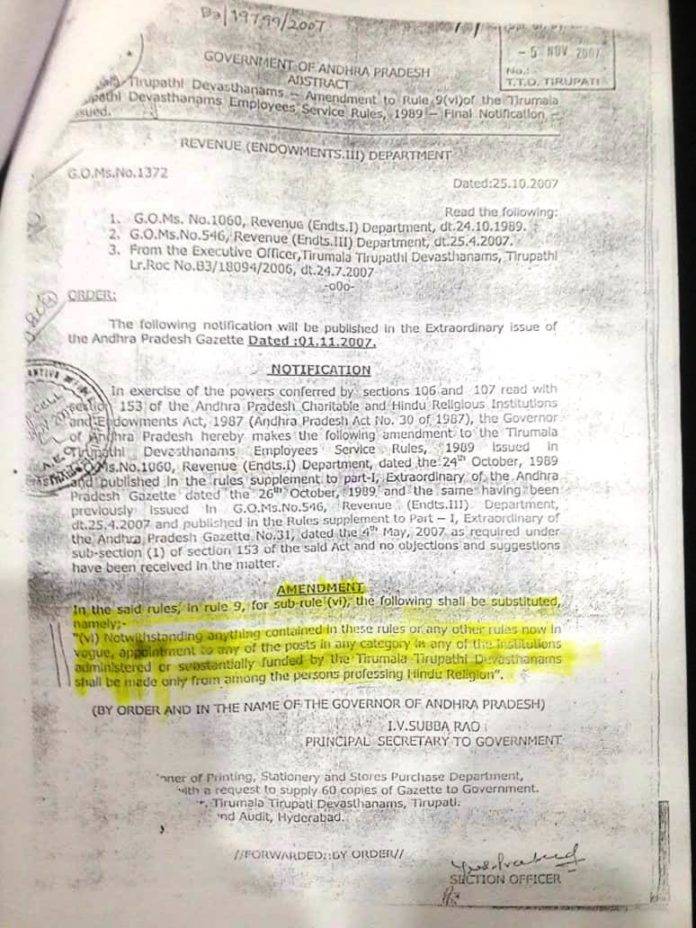
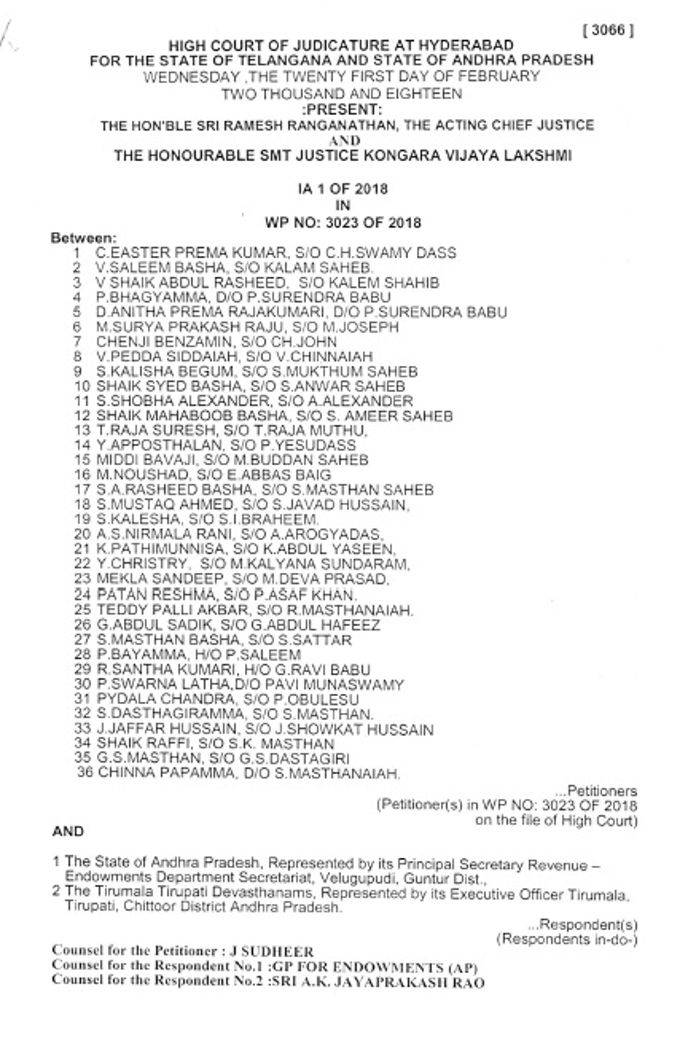
Figure 1. APHC ruling
The timeline for the cases is presented below:
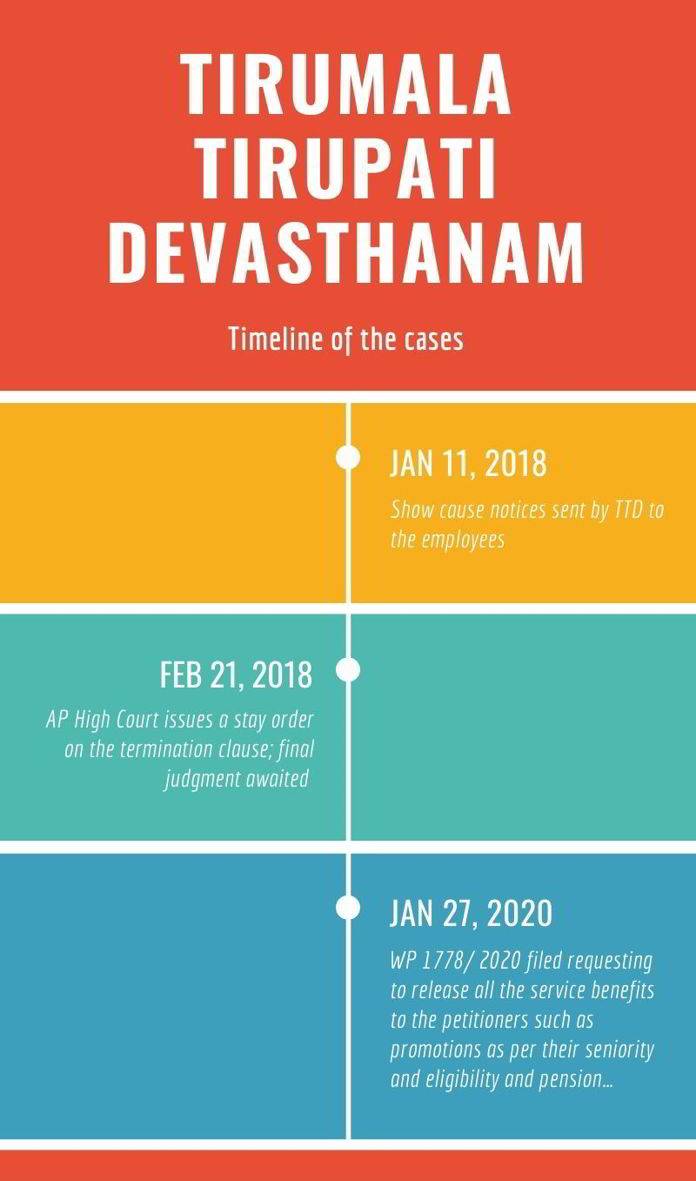
Figure 2. Timeline of cases
In the above case, the order was in favour of those employees who profess Islam and Christianity while working in Hindu endowment related organisations. In other words, their paycheques are being paid by devout Hindus who are religious. As per the court’s directions, TTD can only transfer them, not terminate their employment. The Court thought that they are employed in the secular activities of the TTD. Recently these employees approached the court demanding retirement and other benefits as part of the employment. (WP 1778/2020).
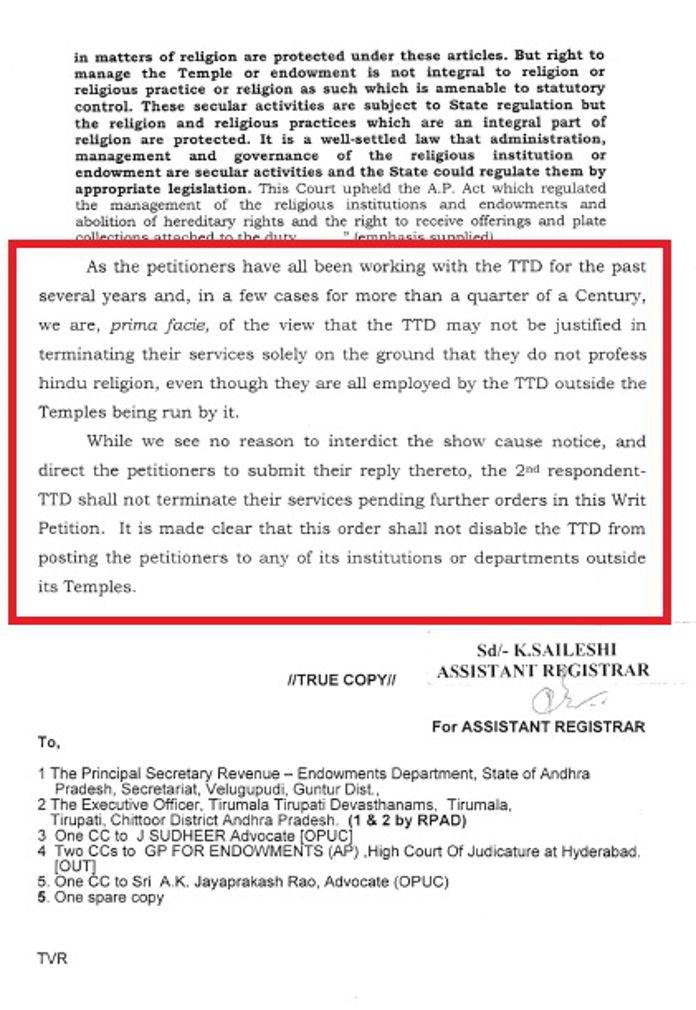
Figure 3. The relevant section of the ruling
Many are wondering as to how a religious institution can be secular; the very foundation of TTD is a Devasthanam, which is clearly a religious institution of Hindus. Yet the court thinks that it has some secular aspects. Would the honourable court use the same yardstick if this were to have happened in a Church or a Masjid? It must be kept in mind that it was the British who took over TTD from the Hathiram Matham (Figure 4).
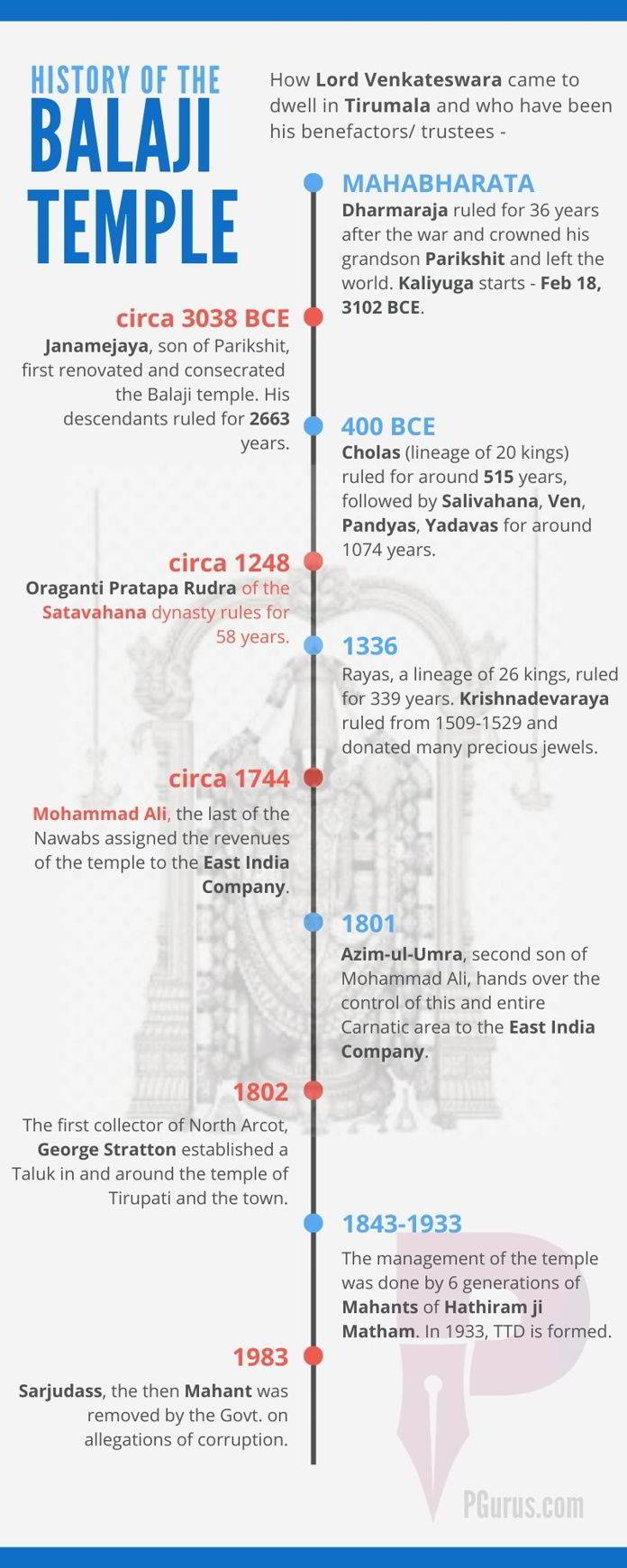
Figure 4. Balaji Temple timeline
Some observations:
- No one begged the government to take over the management of Hindu temples and its related activities. Yet the government took over citing half-cooked studies (in our opinion) such as the Challah Kondaiah Commission report[3].
- When taking over any organisation, whoever takes over the responsibility is also responsible in the upkeep of the so-called standards which they mentioned earlier to take over these temples.
- The government can’t pick and choose issues to suit their political gains. They must take complete responsibility on what goes on in the endowment and the TTD.
- The TTD board is formed purely on a political basis, not on a religious basis. Earlier there were attempts to appoint people professing Christianity as board members – one such example being Anita, a Member of the Legislative Assembly[4].
- If other religious members visit Tirumala, does it make it a secular place? If so, since Hindus too visit many Dargahs and Churches would they (Dargahs and Churches) also not become secular? If so, why are they not asked to take or support these employees?
- It is a well-known fact that Churches and Mosques are receiving huge funds from abroad. Why then did the government not appoint a commission like the Challah Kondaiah commission to study the financial mismanagements of these organisations? What is good for the goose is good for the gander too, isn’t it?
- There are many devout Hindus who are qualified and unemployed but were not given an opportunity to serve their lord. How did non-Hindus get jobs in Hindu religious places in the first place?
- The most important of all is that many Christian and Islamic organisations are running Hospitals, Schools etc. where it is alleged that religious proselytization is happening in these organisations on a large scale. The final victim in most cases is a Hindu.
- How come the name of Jesus appeared in the Tirumala online library? It has been several months since the library was taken down. Why has it not gone active online? Was the appearance of Jesus online a deliberate attempt to shut down the free library or Hindu religious material access to the public?[5]
It is widely believed that the timing of the statement of the then AP Chief Secretary L V Subrahmanyam with reference to the non-Hindu employees was a diversionary tactic used by the government to deflect people’s attention away from the following two major things that happened in Aug 2019[6]:
- It helped in diverting public attention from the Non-Hindu employee’s appointment issue at Srisailam Temple, Andhra Pradesh[7] and
- There was a huge amount of gold (53 gold coins, 4 gold chains… etc. missing) and silver missing from Tirumala; It was not only missing but some items that were not even entered in the log were found in the audit. Such a huge scam on record got caught and the news started spreading just about that time when the announcement came from L V Subramanyam. A detailed list of missing items that surface during the audit in this reference[9]. Soon after the announcement, everyone’s attention turned to anticipating the possible action on the non-Hindu employees in the Hindu endowments department. The opposition party Telugu Desam (TDP) also went quiet on this issue because it was during their tenure that the scam took place. The whole saga came to an end with Mr. L V Subramanyam getting transferred to another department[8]. The political parties had successfully diverted public attention and a sincere bureaucrat was sacrificed at the altar of politics. The very basis of implementing the Justice Challah Kondaiah Commission report was to deal with alleged financial mismanagements in the endowment. But that is exactly what is not happening under the secular government management of temple wealth. The government’s complacency has failed to address several critical issues as listed below:
- It failed to safeguard the devout Hindu’s interests
- It failed to reduce the financial mismanagement – in fact, more such irregularities are coming to light from many places.
- It failed in anticipating the attacks on Hindu religious beliefs by the nonbelievers.
- It failed in enhancing the Hindu Dharmaprachar, which is being portrayed by other faiths as the incompetence of Hindus.
- It failed in taking countermeasures from the infiltration of the non-Hindu Believers.
To be or not to be (secular)? That is the question!
The government is responsible for nurturing, fostering and ensuring that Hinduism reaches every nook and corner of the state. Unlike other religions, Hindu temples are under the control of the government, so the onus is on the government to ensure that Sanatana Dharma flourishes. In other words, if the government thinks it is secular, then by inference, the entities it controls must also be secular. Which begs the question, are Churches and Mosques secular? Since they have their own bodies managing them and thanks to copious inflows, why do they have to be paid from the coffers of the government? There is only one way out – the government must leave managing Hindu temples to Sanatanis – treat all religions the same way.
Where is the audit?
While passing the above judgement, the court cited Sri Adi Visveswaraya of Kashi Vishwanath Temple, Varanasi, the Supreme Court case. It read:
“By the very nature of things, it would be extremely difficult, if not impossible, to define the expression “religion” or “matters of religion” or “religious beliefs or practice”. Right to religion guaranteed by Articles 25 and 26 is not absolute or unfettered right to propagate religion which is subject to legislation by the State limiting or regulating every non-religious activity. The right to observe and practise rituals and right to manage in matters of religion is protected under these articles. But the right to manage the Temple or endowment is not integral to religion or religious practice or religion as such which is amenable to statutory control, these secular activities are subject to State regulation but the religion and religious practices which are an integral part of religion is protected. It is a well-settled law that administration, management and governance of the religious institution or endowment are secular activities and the State could regulate them by appropriate legislation.”
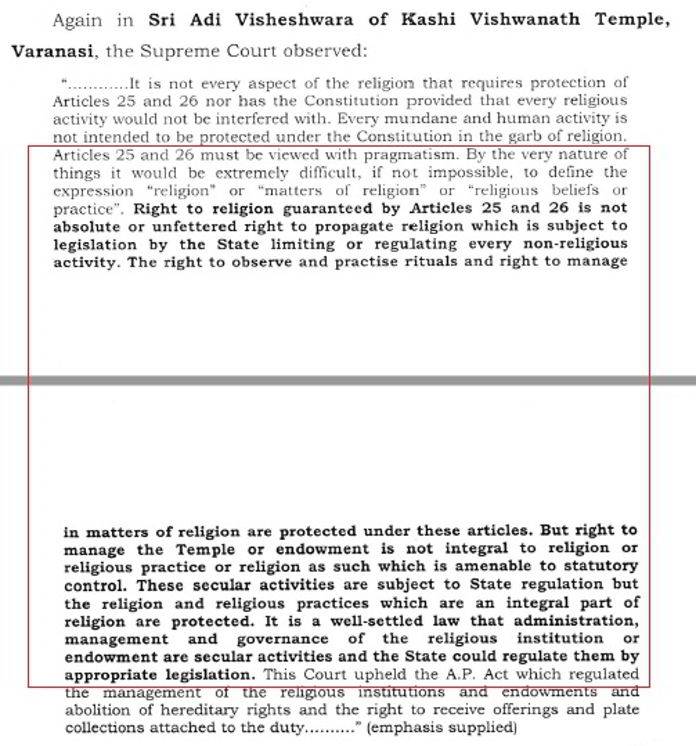
Figure 5. SC judgment on Govt. role in a religious place
Audits done sporadically on Hindu temples have been sloppy, to say the least [9]. As said by the Supreme Court in the above judgment, “the administration and governance of the religious institution or endowment are secular activities and the state could regulate them by appropriate legislation”. Why not enact laws to that extent so that all religions are treated equally by the secular government and hence must be done on a regular basis irrespective of the religion?
Conclusion
This order allows for all to work on religion-based-institutions, regardless of the religion of the worker. It is up to all institutions to welcome with open arms the most qualified candidate for a job – not constraining it with the religion. This is how Uthisht Bharat will happen.
Please subscribe to Save Temples Telegram channel at https://t.me/savetemples











 Urgent support needed for Bangladesh Hindus
Urgent support needed for Bangladesh Hindus 







